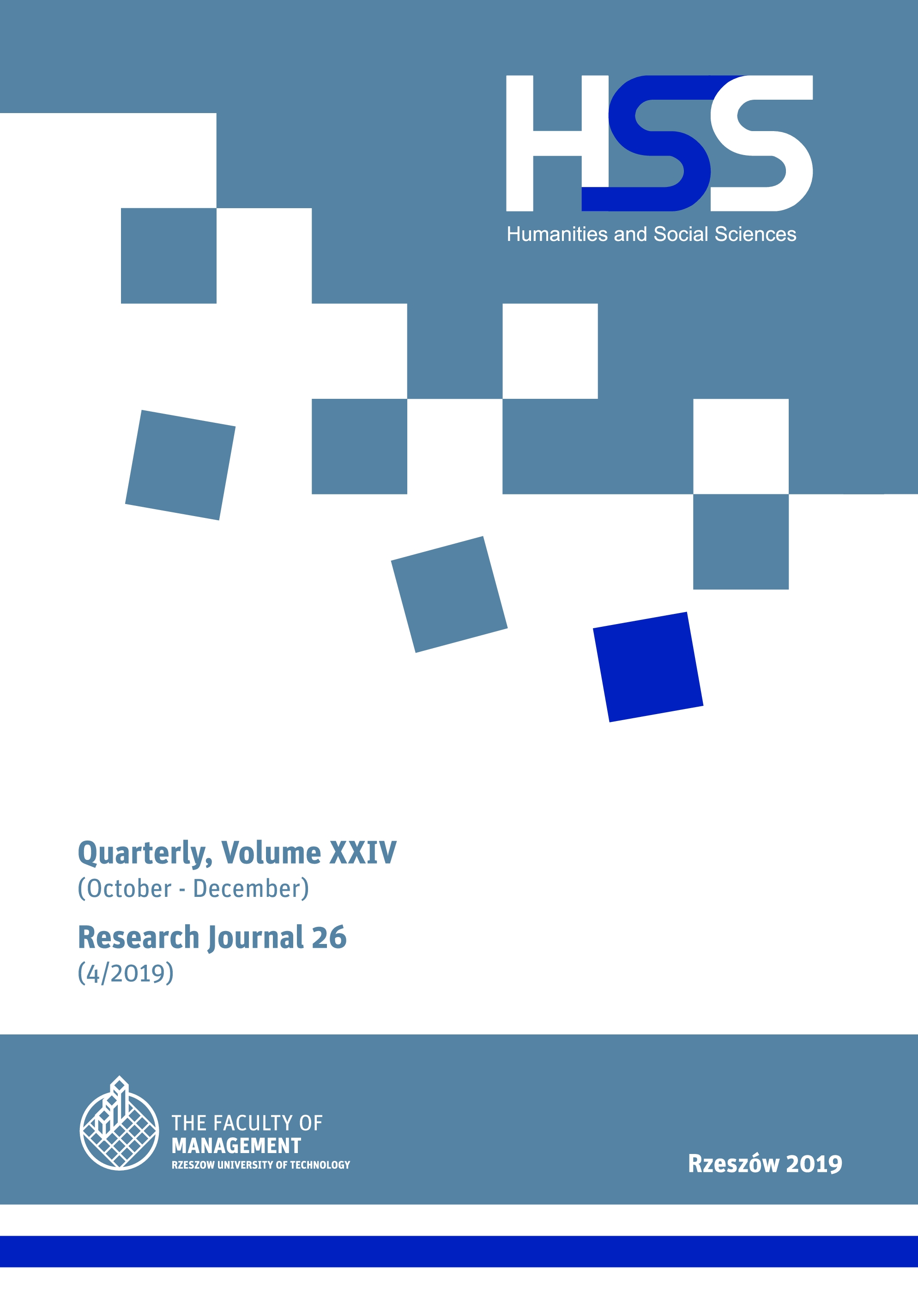Abstract
This article analyses the material situation of households of disabled people in an inclusive economy. It presents the results of the study based on statistical data from the households` budget survey conducted by Statistics Poland. The article compares the material situation of households in which disabled people live with the situation of households without disabled people, with an emphasis on the importance of economic inclusion as a condition factor of their situation’s improvement. The study tested three research hypotheses: 1) achievement of higher income by households without disabled people; 2) higher levels of hypothetical incomes as just as useful by households of disabled people who run a business compared to disabled people who do not carry out such activities); 3) a higher risk of poverty by households with disabilities. The findings supported the hypotheses concerning differences in the material situation of the surveyed households.
References
Ali I., Son H.H. (2007). Defining and Measuring Inclusive Growth: Application to the Philippines. ERD Working Paper No. 98.
Cieślik J. (2014). Przedsiębiorczość, polityka, rozwój. Warszawa: Ed. SEDNO.
Dessy Martinez J.L. (ed.), Malinowska M., Radoń A., Ambrogi M., Marcus B., Szczygieł E. (2018). Jak doradzać osobom niezdolnym do pracy w rozwijaniu przedsiębiorczości inkluzywnej. Przewodnik. Rzeszów: Fundacion Docete Omnes, Stowarzyszenie „Centrum Wspierania Edukacji i Przedsiębiorczości”, Granada – Rzeszów.
EUROPE 2020 (2010). A European strategy for smart, sustainable and inclusive growth, EUROPEAN COMMISSION, Brussels.
http://www.oecd.org/cfe/leed/inclusive-entrepreneurship.htm
Kot J., Kraska E. (2017). Inkluzywna gospodarka – aspekt teoretyczny na przykładzie województwa świętokrzyskiego. „Studia i Materiały. Miscaellanea Oeconomica”, Vol. II, No. 2.
Labour Force Survey (LFS), Statistics Poland, Warsaw (every year).
Maciejewski W., Faron A. (2014). Edukacja ekonomiczna i przedsiębiorcza a postawy przedsiębiorcze osób bezrobotnych. „Finansowe i organizacyjne aspekty kooperacji nauki i lokalnej przedsiębiorczości” (ed. Ł. Sułkowski, M. Walczak), Przedsiębiorczość i Zarządzanie, Vol. XV, Issue 10, part II, Łódź-Garwolin.
Mączyńska E., Gospodarka inkluzywna – wymiar samorządowy. Access on the internet: https://www.bgk.pl/files/public/Pliki/news/Konferencje_BGK/XII_Konferencja_BGK_dla_JST/Materialy_konferencyjne/Elzbieta_Maczynska_Gospodarka_inkluzywna_-_wymiar_samorzadowy.pdf
Poland 2030, The Third wave of modernity. Long-term National Development Strategy (2013). Ministry of Administration and Digitization, Warsaw.
Project Europe 2030 – challenges and opportunities. A report to the European Council by the Reflection Group on the Future of the EU 2030 (2010). European Union, Stuttgart.
Range of economic poverty in Poland, Statistics Poland, Warsaw (every year with Annex).
Szczygieł E. (2014). Ocena użyteczności dochodu i jej wpływ na oszczędności gospodarstw domowych. Warszawa: WNT.
(2015). Poverty and social exclusion in selected European countries. Rzeszów: CWEP.
Szczygieł E., Piecuch T. (2018), Rolnicy i przedsiębiorcy – indywidualne działanie i dwie drogi rozwoju. „Nierówności Społeczne a Rozwój Gospodarczy”, No. 54.
(2016). Rozkłady dochodów przedsiębiorców i ich użyteczność na tle innych grup społeczno-ekonomicznych. „Nierówności Społeczne a Rozwój Gospodarczy”, No. 48.
Wach K. (2015). Przedsiębiorczość seniorów jako komponent przedsiębiorczości inkluzywnej: wstępna synteza. „Horyzonty Wychowania”, Vol. 14, No 32.
Walby S. (2018). The concept of inclusive economic growth, „Soundings”, Spring, Issue 68.
World report on disability (2011). World Health Organization & World Bank, Geneva.
Legal acts
Act of 27th August 1997 On vocational and social rehabilitation and employment of disabled persons [Ustawa z dnia 27 sierpnia 1997 r. o rehabilitacji zawodowej i społecznej oraz zatrudnianiu osób niepełnosprawnych], (Dz.U. z 1997 r., nr 123, poz. 776).
Databases:
Subsidy and Refund Management System (SODiR) PFRON


